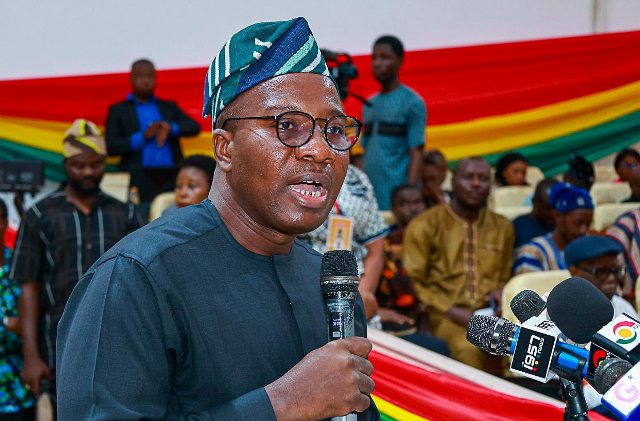Majority Leader Mahama Ayariga has taken a swipe at the Minority in Parliament, describing the New Patriotic Party (NPP) as no longer a ‘micro minority’ but a ‘minuscule minority.’
This follows the latest by-elections that strengthened the National Democratic Congress’ (NDC) dominance in the House.
Speaking on the floor of Parliament during the opening of the Third Meeting of the First Session of the Ninth Parliament, Mr. Ayariga said the NDC’s recent electoral victories are a clear endorsement of the government’s performance under President John Dramani Mahama.
Also Read: Paul Baffoe-Bonnie: Chief Justice nomination referred to Parliament’s Appointments Committee
“Mr. Speaker, in the two by-elections, the National Democratic Congress, the NDC, won the elections. Winning the Akwatia constituency, about eight months in office, signals the growing popularity of the NDC in government and the positive rating of the government of President John Dramani Mahama,” he declared.
The results from Akwatia and Ablekuma North, he said, have now made the House fully constituted, tilting the balance of power even further in favour of the governing party.
“The independent members of this House remain, but for the NPP, which previously had a micro minority of 88, its number has now shrunk further to 87. Mr. Speaker, I believe we are no longer dealing with a micro minority but a minuscule minority,” Ayariga teased.
The Majority Leader explained his choice of words, saying, “Micro could actually be a large number because micro is a unit of measurement. One million can actually be considered micro when evaluating one billion. In English, when you want to describe something very small, you say minuscule.”
Mr. Ayariga boasted that the NDC’s ‘supermajority’ has now ballooned to 185, adding that with the cooperation of the four independent MPs who have agreed to do business with us, the NDC’s parliamentary strength has become a gargantuan majority.
“All I can say is, Mr. Speaker, so far, so excellent,” he added.
Touching on governance priorities, the Majority Leader noted that the recess period allowed Members of Parliament to assess the real-world impact of the policies, laws, and budget approved by the House in earlier sittings.
“Our engagements revealed the persistent, urgent need to address youth unemployment. We must ensure that our laws and the policies that we enact create jobs,” he said.
Highlighting the demographic challenge, Ayariga observed that Ghana’s population still remains very young, with citizens aged 15 to 35 making up over 38 per cent of the population and 60 per cent of the labour force, and face enormous barriers to economic inclusion.
The Majority Leader’s remarks come at a time when the NDC government is projecting renewed optimism in its governance agenda, buoyed by the successive by-election victories that appear to have weakened the NPP’s influence in the legislature.


